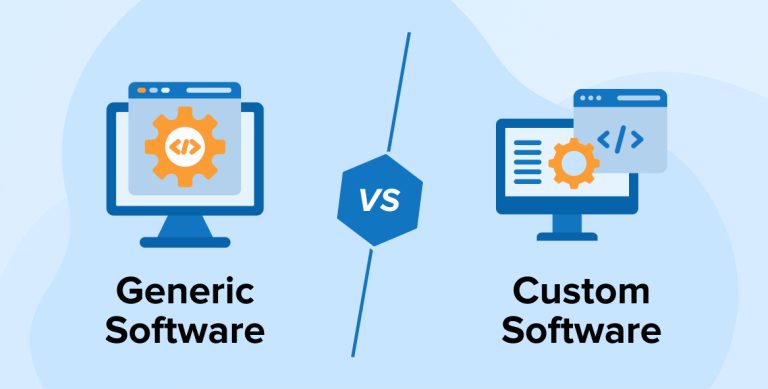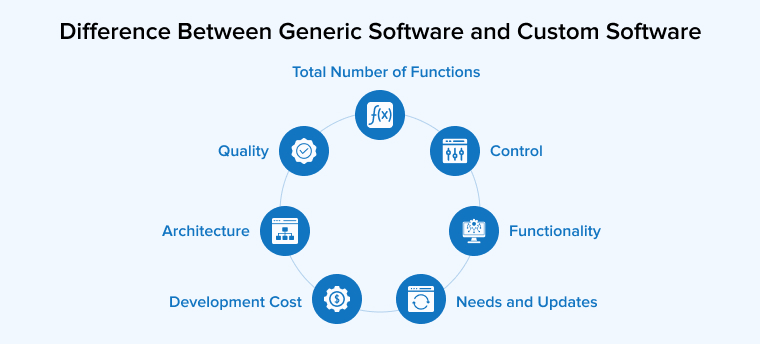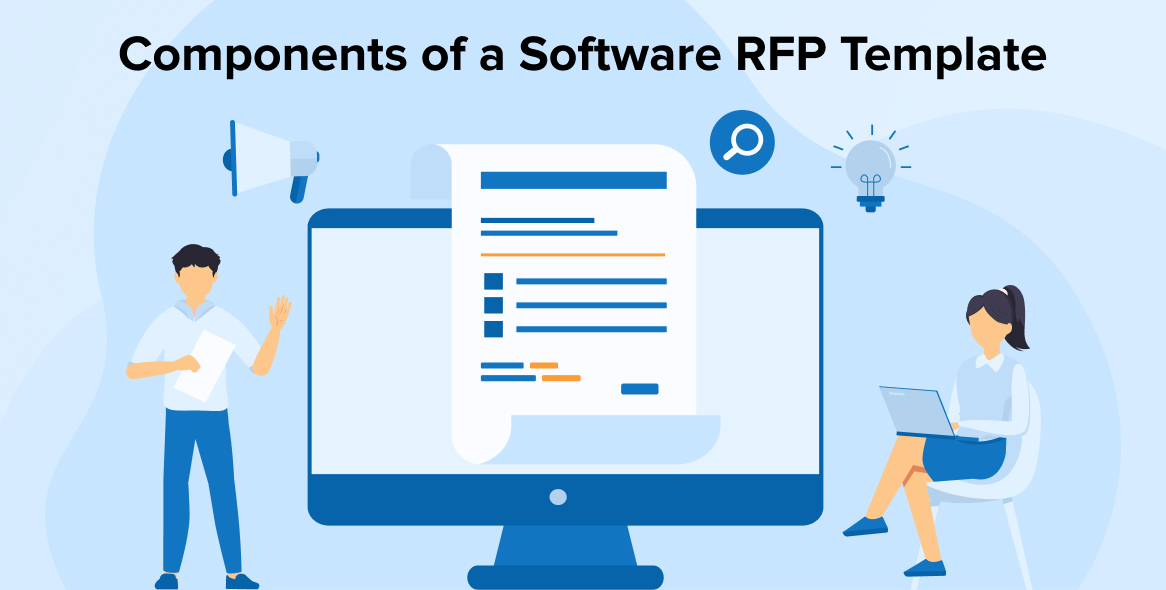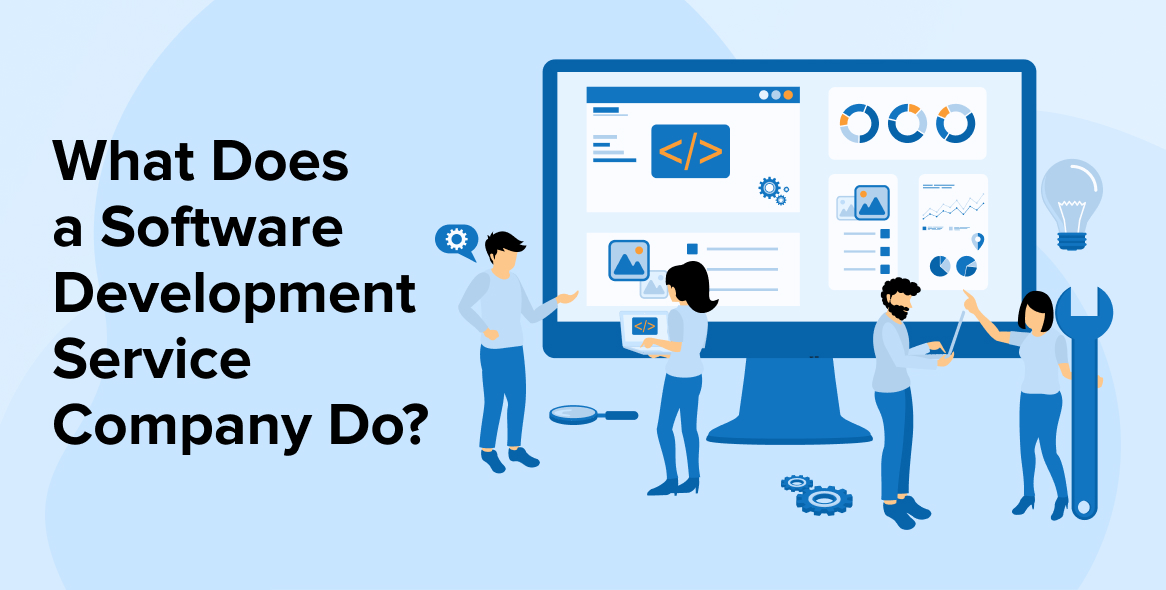
In today’s time, generally, every business uses a digital platform to streamline the process and ease up the work for the employees. Some companies use off-the-shelf software and others use customized software that is developed by a software development agency. Organizations that are not looking to hire software development services and invest in custom-made software solutions go with generic solutions readily available in the market. But which is a better suit for an organization is a big question.
If any organization is planning to integrate a digital solution in their business but is confused about which to choose, then in this blog, we will understand both the concepts of generic software and custom software and go through its differences to get a clear idea.
1. What Is Meant By Generic Software?
Generic software is a system designed for general public usage. It is software that isn’t created for a specific purpose, organization, or individual. Generic software development has functionality designed by software developers to solve a particular problem that will be used by many entities. This type of product is created for all types of business requirements which has a positive demand in the open market. The developers create this type of software by themselves and handle it for a group of clients who have similar project requirements.
Basically, generic software is stand-alone solutions that are created for an open market and not for a particular organization. And in some cases, multiple organizations are in control of such generic products. Different software development companies come together to create a product that has a reliable market requirement and can fit most companies’ needs.
This means that in the case of generic software, there is no prior customer. Software development companies design the software including as many functions as possible to satisfy the market requirement and it can be used by various businesses or individuals. This type of software is later sold in the open market to customers as a product to get the developing company’s cost and expense back.
2. What Is Meant By Custom Software?
Custom Software is a specifically designed system for a particular customer or an organization. For this, a business organization or a user hires a software development company to create software that can offer some specific results and functionalities. This type of software is not available for general use only the customer for whom it is available has the right to use its distinctive features. It only caters to the requirements of a specific firm which allows it to gain a competitive advantage over the market.
To create a custom software, everything from the list of requirements, functionalities, and expenses is required which is covered by the client. And a development agency generally takes a lot of time for bespoke software development in comparison to the development of off-the-shelf solutions.. This type of project includes service software projects for specific clients. The custom products developed here have distinct requirements in the market and are going to be used for a limited period of time by a limited number of people. But still, its development is more costly than that of generic software.
3. Difference Between Generic Software and Custom Software

Here are major differences between the generic and custom software products –
Quality
When it comes to creating generic software, developers do not go behind perfection, the only thing that matters to them is the quality of the software and not every small attribute or parameter. And this is why a software development company doesn’t focus minutely on the quality of the generic software, all they want to do is create the software and release it on time. And if the firm tries to focus more on the quality of the generic software product, they might face a huge loss by delaying the release of the system.
On the other hand, when it comes to creating custom software, the situation is completely opposite of generic software. Every development team takes the custom software development process very seriously. Custom ones should pass all the quality parameters. It is created with specific features to fulfill the business needs of a specific organization or an individual hence it is required to have the best quality to impact the client’s revenue for the progress of the business organization.
Control
Control of the software is one of the most important things and this is what differs a lot when it comes to generic software and custom software. In generic software development, the software users have no control over the system and its development process. The developers and designers create the software keeping the basic requirements of the software type in mind. They get their ideas from the products of other development agencies. This means that even though generic software users need a license to use it, they have no right to give suggestions to the software engineering team.
But when it comes to custom software, the sole control over its development process is in the hands of its users. The clients acquire the license of the software and can give suggestions or demand changes as per their requirements and the developers have to offer the system along with the exact specifications as asked. This means that all the decisions like which features must be there in the system or when the product needs to be upgraded with new versions are in the hands of the customer.
Development Cost
Normally, generic software is affordable as they are not specifically for a particular company or a client. It is for the use of various businesses hence there are no hidden costs. Generic software is designed with the funds of the developing company and it generally costs lower than custom software. But, some extra costs are necessary for some generic software to implement the system in any business organization.
On the other hand, if any business organization wants to have a system that perfectly suits its process, it will have to hire a custom software product development team that will develop the personalized system. But the cost of this system will be much higher than generic software as it is curated for a firm’s in-house usage and it will have all the required features as per the particular client’s demand. Hence the custom-made software must be highly scalable and cost-effective.
Needs and Updates
In Generic software, the updates are done as per the market requirement and generic software product development is carried out by keeping the future updates.
When it comes to updating the custom software, it completely depends on the particular client. If the customer wants to add new features to the system, the development team has to work accordingly and release a new updated version of the software. Besides, custom software updates are not general, they depend on the client and the changes demanded through the update.
Total Number of Functions
Off-the-shelf software’s key importance is to offer versatility. This type of product comes with a wide number of functions and some basic features because of its wide usage.
On the other hand, custom software focuses on specific client or business requirements. A tailor-made software cannot be used by everyone as it is not user-friendly for every firm and also it is developed to solve problems related to a specific entity.
Architecture
Generic solutions are created to be scalable and this is why its architecture is user-friendly and can be pivoted during the years according to the market requirements. Besides, this type of software is super agile and it is because off-the-shelf software has to accommodate large-scale future adaptations as per the growth and technological advancements that are seen in the market.
But the custom software does not focus on scalability as the design intends to fulfill the business needs of a particular organization. This means that it only focuses on creating a perfect balance between the client’s current requirements and scalability. The key focus of this type of software is to deliver products as per the requirement analysis and offer flexibility for future modifications.
Functionality
Generic software has multiple functions but they are for common use. For instance, a spreadsheet application comes with different functions but all of them are common as anyone can use this app for their own purpose.
But when it comes to custom software, the scenario is completely different. The functionalities of this software are as per the business requirement as they can help organizations solve some specific problems.
4. Examples of Generic Software And Custom Software
Understanding the distinctions between generic software and custom software can help organizations choose the right solutions to meet their specific needs. Here are examples to distinguish them better.
4.1 Generic Software Product Examples
Generic products are also known as content-free applications. Everyone in their work, college, or school has used a generic software product for project creation or submission, presentation, etc. Some of the major generic software products available in the market are –
- PowerPoint
- Adobe Photoshop
- Norton Antivirus
- Firefox
- Excel
- OmniOutliner
- OmniPlan
- Word
- Oracle
- SAP
- TurboTax
- Intergraph SmartPlant
- Outlook
- Notes
4.2 Custom Software Product Examples
Some of the major custom software products available in the market are –
- Automated Invoicing System
- CMS
- CRM
- Voice Recognition / Virtual Assistants
- Company/Customer-facing Web Portals
- Delivery Software
- Streaming Services
- eCommerce Stores
- Planning Tools
5. Conclusion – Generic Software Vs. Custom Software
As seen in this blog, both these options are good for any business organization. The decision of choosing between generic and custom software only depends on the firm’s requirements and budget.
If one decides to invest in a customized solution, after the initial investment, the cost will get lower and the system will pay for itself over time. And if the business follows a traditional hierarchical structure that involves personalized communication, record-keeping, data entry, and inter-departmental updates, choosing custom software will be the best option as it fulfills all the exact specifications as per the department’s needs and workflows. Besides, custom software also enables the organization to integrate other systems with itself.
On the other hand, readymade software comes with its own advantages. Any organization that wants to buy a generic solution can initially save a lot of time and money. But over time, with some workarounds, this type of software can keep the business in a type of momentum, especially when the organization no longer depends on constant customer communication or data sharing. At the same time, choosing generic software saves a lot of time and energy that goes behind finding a trustworthy software development company to help create a tailor-made solution.
Basically, as said before, both generic software and custom software solutions are good for any business but the selection between these two must be complete as per the business type, requirement, budget, market share, and problems that need to be answered for smooth operational process, and more.






Comments
Leave a message...